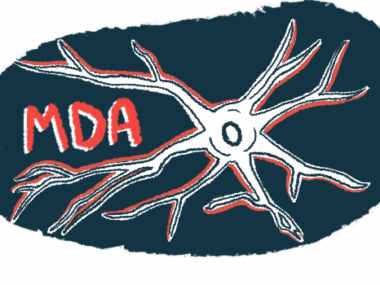Gene Therapy Program for ALS Due to C9orf72 Mutations Opening in UK
Written by |

Research into gene therapies for motor neuron diseases (MNDs), a group of progressive neurological disorders that includes amyotrophic lateral sclerosis, is set to begin at the University of Sheffield in collaboration with Cell and Gene Therapy Catapult.
Supported by a £513,141 (about $700,00) grant from LifeArc and the MND Association, both also based in the U.K., the program will assess the feasibility and efficiency of gene therapies for MND and frontotemporal dementia (FTD) patients carrying mutations in the C9orf72 gene.
“We are delighted to be joining with LifeArc in supporting this innovative research programme at one of the world’s leading centres for MND research,” Brian Dickie, PhD, director of research development at the MND Association, said in a press release.
“Gene therapy for neurodegenerative diseases, such as MND, has had its ups and downs over the past two decades, but the field is now enjoying a renaissance. There is a clear route to clinical trials if the outcomes of this new study are positive,” he added.
Mutations in the C9orf72 gene are the most common genetic cause of ALS, occurring in about 50% of hereditary cases and up to 10% of sporadic cases. These mutations consist of repeat stretches of six DNA letters, which are passed onto the gene’s messenger RNA (mRNA) — the molecule generated from DNA and used as the template for protein production.
In healthy cells, these repeat sequences are prevented from doing damage by being cut from mRNA before it leaves the nucleus. However, this control mechanism does not occur in C9orf72-mutated cells, and the faulty mRNA molecules end up giving rise to a toxic protein.
Preclinical studies conducted by researchers at the University of Sheffield’s Institute for Translational Neuroscience (SITraN) demonstrated that the SRSF1 protein transports the abnormal mRNA molecules out of the cell nucleus.
Further tests in patient-derived motor neurons — the cells that are damaged and lost in ALS — and in fruit flies showed that removing the SRSF1 protein lead to a reduced transport of the mutant mRNA out of the nucleus. This prevented nerve cell death and eased movement abnormalities.
Researchers will now investigate if a gene therapy designed to prevent these mRNA molecules from leaving the nucleus may help to slow or stop motor neuron death.
“No one has yet attempted to prevent these repeated sequences of RNA from leaving the cell’s nucleus and it opens up new areas of investigation for gene therapy,” said Guillaume Hautbergue, PhD, head of the RNA Biology Laboratory at SITraN.
“It is an exciting time for biomedical research and the development of novel treatments for incurable diseases such as MND,” added Hautbergue, who is also the preclinical study’s first author.
“This gene therapy approach, focused on preventing motor neurone toxicity, is the latest in a series of initiatives we are proud to be part of to drive research into practical treatments for this fatal and brutal condition,” said Melanie Lee, PhD, CEO of LifeArc.
Cell and Gene Therapy Catapult, an independent center, works to advance cell and gene therapies in the U.K. Under this partnership, the center will design the safety strategy for Sheffield’s preclinical research, and provide regulatory advice for interactions with the Medicines and Health Regulatory Agency.
“The progress of this scientific breakthrough from the University of Sheffield and the support for this programme by leading investors and charities such as LifeArc and the MND Association, is testament to the UK research excellence and favourable ecosystem for cell and gene therapies,” said Matthew Durdy, CEO of Cell and Gene Therapy Catapult.
“We welcome the opportunity to be part of this programme and look forward to working with the University of Sheffield to help advance their innovative gene therapy technology into the clinics,” he added.






